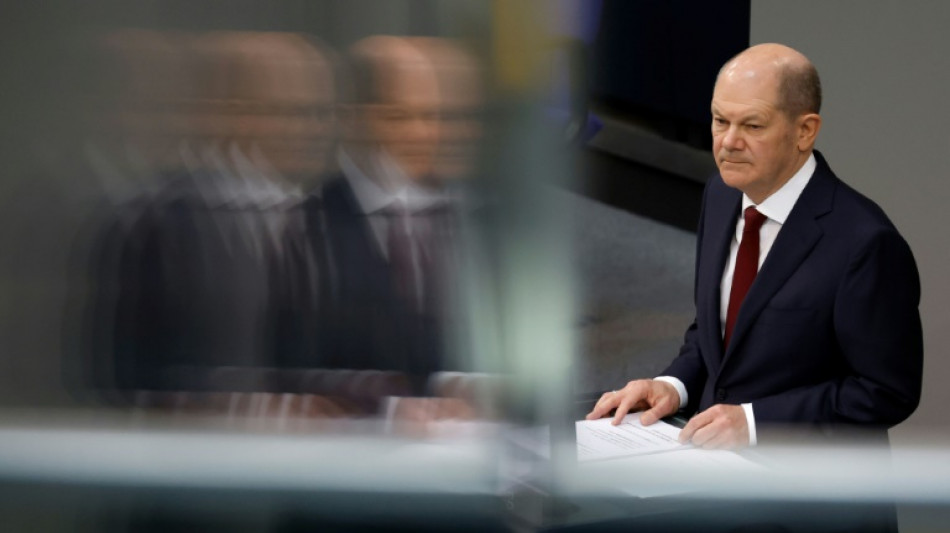
-
 SFWJ / Medcana Announces Strategic Expansion Into Australia With Acquisition of Cannabis Import and Distribution Licenses
SFWJ / Medcana Announces Strategic Expansion Into Australia With Acquisition of Cannabis Import and Distribution Licenses
-
Trump talks up EU tariff deal as Italy's Meloni visits
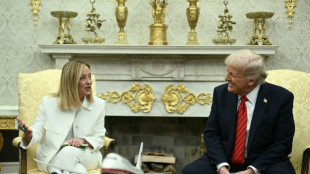
-
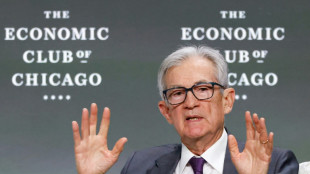 Trump insists he could fire independent Fed Chair Powell
Trump insists he could fire independent Fed Chair Powell
-
Google has illegal monopoly in ad tech, US judge rules
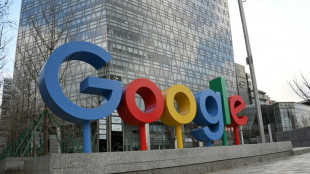
-
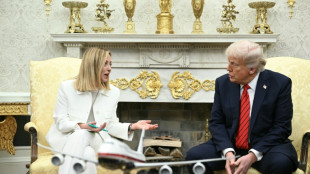 Trump softens on Zelensky, says mineral deal coming 'soon'
Trump softens on Zelensky, says mineral deal coming 'soon'
-
Jacks helps Mumbai beat Hyderabad in IPL

-
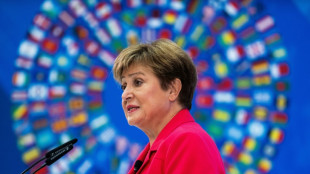 Countries must 'make the best' of new multipolar world: IMF chief
Countries must 'make the best' of new multipolar world: IMF chief
-
Heavy spring snow storm wreaks havoc in the Alps
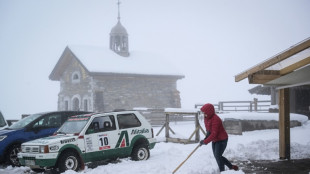
-
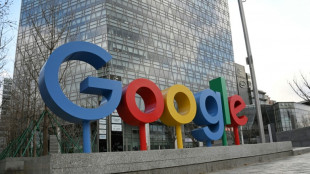 US judge rules against Google in online ad tech antitrust case
US judge rules against Google in online ad tech antitrust case
-
Andreeva knocked out by Alexandrova in Stuttgart last 16

-
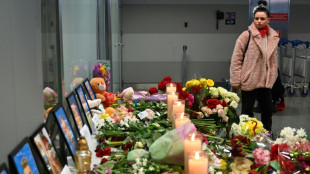 Iran challenges four countries in UN court over jet it downed in 2020
Iran challenges four countries in UN court over jet it downed in 2020
-
'Not at 50' - Alonso sets retirement limit

-
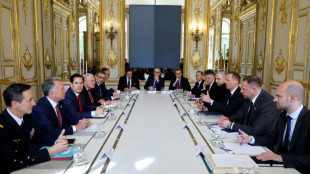 Macron praises US-European-Ukraine talks as 'important occasion for convergence'
Macron praises US-European-Ukraine talks as 'important occasion for convergence'
-
Verstappen dismisses Red Bull exit fears

-
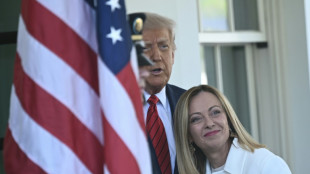 Italy's Meloni, Trump talk up EU trade deal hopes
Italy's Meloni, Trump talk up EU trade deal hopes
-
'Slow but steady' progress for Martin after Qatar MotoGP crash

-
 Pogacar-Van der Poel duel inspires Evenepoel comeback
Pogacar-Van der Poel duel inspires Evenepoel comeback
-
US judge rules Google monopolized online ad tech market
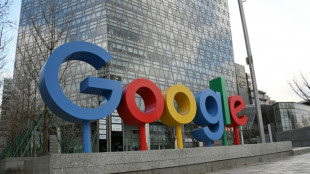
-
 Bearman back at 'special' debut-track Jeddah
Bearman back at 'special' debut-track Jeddah
-
Swiss watch exports to US soared ahead of Trump tariffs

-
 Alcaraz finds best to reach Barcelona Open quarters
Alcaraz finds best to reach Barcelona Open quarters
-
Where are all the aliens?: Fermi's Paradox explained

-
 France full-back Dulin to retire at end of season
France full-back Dulin to retire at end of season
-
World economy likely to avoid recession despite tariffs: IMF chief
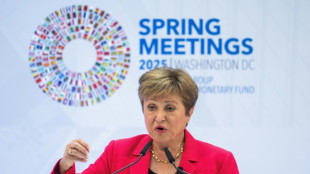
-
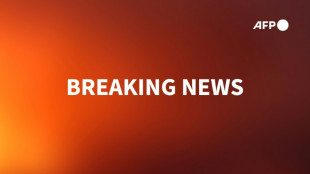 57 killed in Sudan's Darfur as trapped civilians fear bloodbath
57 killed in Sudan's Darfur as trapped civilians fear bloodbath
-
Vietnam ups wind, solar targets as energy demand soars

-
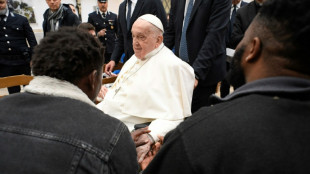 Pope says doing 'best he can' on jail visit before Easter
Pope says doing 'best he can' on jail visit before Easter
-
China's Xi meets Cambodian leader as part of regional diplomatic blitz
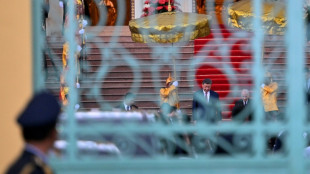
-
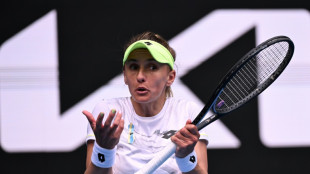 Ukrainian tennis player seeks legal justice over 'moral abuse'
Ukrainian tennis player seeks legal justice over 'moral abuse'
-
Italy's Meloni seeks EU tariff deal from Trump
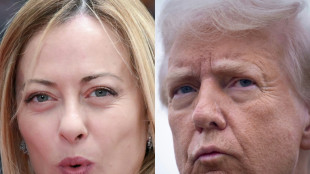
-
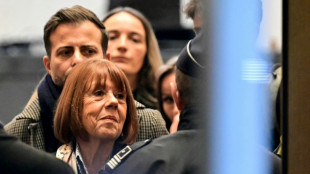 France's feminist icon Pelicot to sue Paris Match for privacy invasion
France's feminist icon Pelicot to sue Paris Match for privacy invasion
-
World economy should avoid recession despite tariffs, IMF chief says
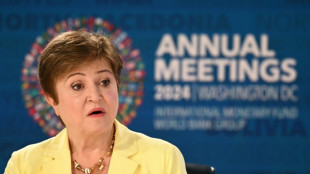
-
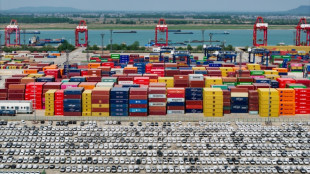 Stocks waver as ECB cuts rate, Trump slams Fed chief
Stocks waver as ECB cuts rate, Trump slams Fed chief
-
France, UK mull migrant swaps in bid to stem Channel crossings
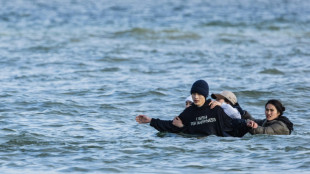
-
 Nuno says Forest still in control of Champions League chase
Nuno says Forest still in control of Champions League chase
-
Malinin, Liu help US take early lead at skating's World Team Trophy

-
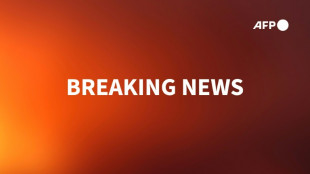 Clashes in Sudan's besieged Darfur city kill 57
Clashes in Sudan's besieged Darfur city kill 57
-
Kyiv's Europe allies seek influence with US in Paris talks
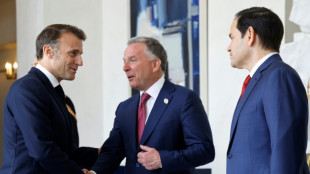
-
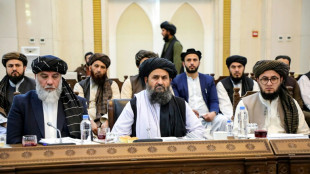 Russia scraps Taliban's 'terror' label amid warming ties
Russia scraps Taliban's 'terror' label amid warming ties
-
Trump says Fed chief's 'termination cannot come fast enough'
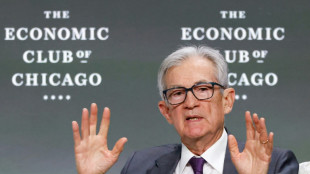
-
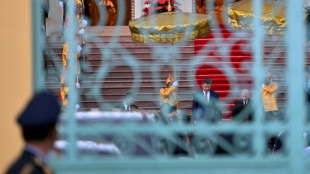 China's Xi, seeking to build regional ties, meets Cambodian leader
China's Xi, seeking to build regional ties, meets Cambodian leader
-
ECB cuts rates as Trump tariffs raise fears for eurozone growth
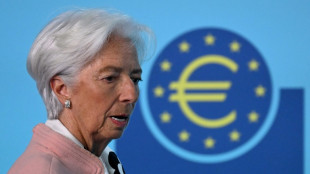
-
 Etzebeth returns to Sharks lineup after concussion absence
Etzebeth returns to Sharks lineup after concussion absence
-
Gaza rescuers say 40 mostly displaced people killed in Israeli strikes
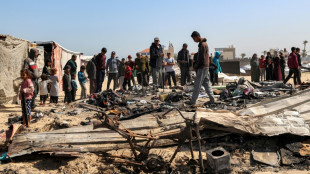
-
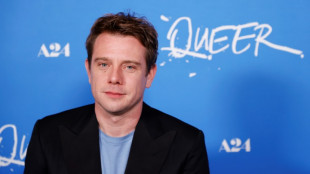 N.Ireland designer Jonathan Anderson takes helm at Dior Men
N.Ireland designer Jonathan Anderson takes helm at Dior Men
-
Turkish central bank raises interest rate to 46 percent
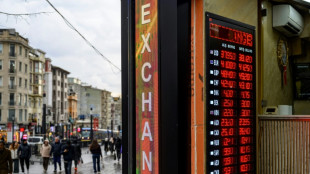
-
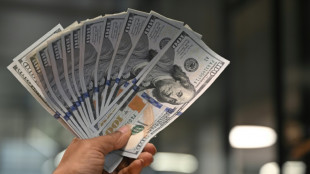 Trump's tariff storm a threat to dollar's dominance?
Trump's tariff storm a threat to dollar's dominance?
-
Bayern forced to watch on as home final dream 'shattered'

-
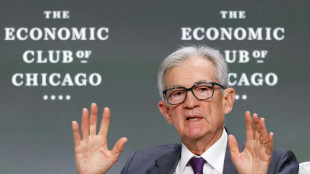 Trump clashes with Fed chief Powell over interest rates
Trump clashes with Fed chief Powell over interest rates
-
UK mulls impact of landmark gender ruling
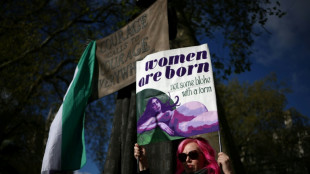

'A new era': Germany rewrites its defence, foreign policies
Chancellor Olaf Scholz on Sunday announced a "historic" shift in Germany's foreign and defence policy, as Russia's invasion of Ukraine forces Europe's biggest economy to ditch decades of reluctance in raising its military profile.
Haunted by its post-war guilt, Germany has always trod lightly and quietly on the world stage when it comes to conflicts.
But at an emergency parliamentary sitting on Sunday, Scholz, who himself had been accused of dawdling on the Ukraine crisis, said: "With the invasion of Ukraine, we are now in a new era."
Hours after Germany dramatically reversed its ban on lethal weapons exports to conflict zones by announcing huge shipments to Ukraine, Scholz said 100 billion euros ($113 billion) will be earmarked for investments for the army in 2022 alone.
The financial bazooka for the Bundeswehr should be written in the German constitution, he said.
Europe's biggest economy will also "from now on -- year after year -- invest more than two percent of gross domestic product in our defence," said Scholz.
The commitment goes above the two-percent target fixed by NATO, overturning years of under-investment that had put Germany in the crosshairs of its allies.
Heavy criticism levied by former US president Donald Trump against ex-chancellor Angela Merkel over Germany's failure to meet NATO targets marked the transatlantic relationship.
But Scholz said Putin's assault has made clear that "Germany will have to invest clearly more in the security of our country."
"The aim is a powerful, state of the art, advanced army that protects us reliably."
-'Different world' -
Scholz, who took office in December after staging a stunning upset of Merkel's party in elections, had often been derided for his robotic speeches defending existing policies.
But the Ukraine crisis appears to have transformed the man once described by Spiegel magazine as "the embodiment of boredom in politics", with what Bild daily called a "historic speech" on Sunday that gives a "jolt to sleepy, bored Germany".
The volte-face is all the more remarkable given the composition of Germany's current government.
After 16 years of conservative-led coalition under Merkel, Scholz's centre-right Social Democrats (SPD) are currently in charge, along with junior partners the Greens and the liberal FDP.
While the Greens have always had an anti-weapons export stance, the SPD has been accused of an overly cosy attitude with Russia, while the FDP is often criticised for privileging economic interests.
But Foreign Minister Annalena Baerbock of the Green party declared that "perhaps on this day, Germany is leaving behind a form of special and unique restraint in foreign and security policy".
"The rules that we have set ourselves must not take us away from our responsibility. If our world is a different one, then our policy must also be different."
Germany said it was delivering 1,000 anti-tank weapons and 500 "Stinger" surface-to-air missiles from its Bundeswehr stocks to Ukraine.
It will also boost troops in NATO's eastern flank, including with new deployments to Slovakia, said Scholz, also voicing readiness to join the defence of allied airspace with anti-aircraft rockets.
- Army woes -
Plagued by years of financial neglect, the morose state of the Bundeswehr had been laid bare by the chief of the German land army, Alfons Mais, on the same day that Putin ordered his troops into Ukraine.
"The options we can offer to politicians to support (NATO) are extremely limited," he wrote in the stark admission on social network LinkedIn.
The Bundeswehr "is more or less bare," he said.
Since the end of the Cold War, Germany has reduced its troop strength from 500,000 at the time of reunification to just about 200,000 today.
Defence officials have over the last years repeatedly sounded the alarm over the army's equipment woes -- a litany of disrepair plaguing fighter planes, tanks, helicopters and ships.
Germany's dark war past has nurtured a strong pacifist tradition that, faced with Russia's incursion, critics say bordered on naivety.
Over the weeks while the crisis was brewing, Germany repeatedly rebuffed Kyiv and allies' pleas to send weapons to Ukraine.
Estonia's bid to hand over to Kyiv eight old Howitzers purchased from ex-communist East Germany was stuck in a bureaucratic tangle in Berlin for weeks before it finally won approval on Sunday.
Germany had offered only 5,000 helmets to Ukraine in the run-up to the conflict, making it a subject of ridicule.
Europe's most populous nation was also accused of putting its economic and energy interests first, as it clung to the Nord Stream 2 pipeline that was due to channel Russian gas to Europe, before finally putting it on hold this week.
But Scholz vowed to shift Germany from dependence on others for its energy imports, saying that the current stress on the energy markets showed the country needed to press on with its switch to renewables.
Scholz "has changed dramatically in the Ukraine crisis. And now, he is changing the country," said Bild in an editorial.
Y.Nakamura--AMWN